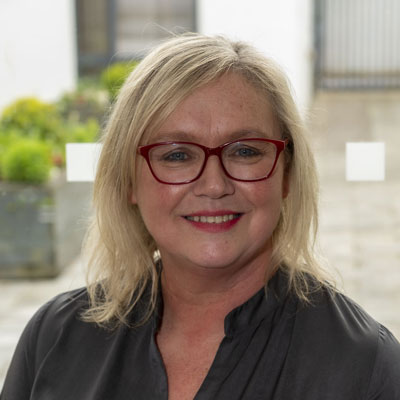
Annie Costelloe
Head of Patient and Community Engagement, Croí Heart and Stroke Charity
New 2024 guidelines from the European Society of Cardiology (ESC) have lowered what is considered a healthy blood pressure, highlighting that earlier intervention is crucial.
“I have a bit of high blood pressure.” It’s a phrase we hear often, yet even slightly raised readings can set you on the path to hypertension and stroke.
Know your blood pressure numbers
A stroke, sometimes called a brain attack, is a sudden interruption of blood flow in the brain caused by a blocked or burst blood vessel, which can rapidly damage brain tissue. High blood pressure strains vessel walls over time, increasing the chance of these blockages or bursts. Depending on the brain area affected, a stroke can cause lasting problems with movement, speech, memory and other vital functions. While survival rates are improving, an ageing population means demand for stroke support services will grow sharply.
High blood pressure can be driven by age, certain medical conditions and lifestyle factors such as high salt intake, inactivity and smoking. The good news is that prevention and control are possible. Because hypertension is generally symptom-free, regularly checking your blood pressure — knowing your numbers — is the best defence.
Seek medical advice if your blood
pressure is consistently higher
than 120/70 mmHg.
New blood pressure guidelines
For the first time, the ESC has produced patient-friendly guidelines, including a new ‘elevated blood pressure’ category: systolic 120–139 mmHg or diastolic 70–89 mmHg. Once seen as normal, this range is now known to increase stroke risk, and it calls for action.
In 2015, TILDA research showed 64% of over-50s had high blood pressure, with 45% unaware of it. Under the new ‘elevated’ category, more people can benefit from monitoring and early lifestyle changes.
According to the WHO, of the 1 million people with hypertension in Ireland in 2019, 41% were on treatment, but only 24% had healthy readings. Uncontrolled hypertension greatly increases stroke risk, so talk to your doctor or nurse about managing your medication effectively.
Tackling hypertension nationwide
Croí, a Galway-based charity fighting heart disease and stroke, delivered 80 health check events in 18 counties so far in 2025. Data from over 1,000 people showed 51% had elevated blood pressure, 34.5% had hypertension, and only 8.9% had healthy readings. These figures show an urgent public health challenge.
Early detection, awareness and lifestyle change are key to preventing strokes and protecting our communities. If you have not done so already, seek medical advice if your blood pressure is consistently higher than 120/70 mmHg to discuss treatment strategies.
Visit www.croi.ie/stroke for support and resources.

